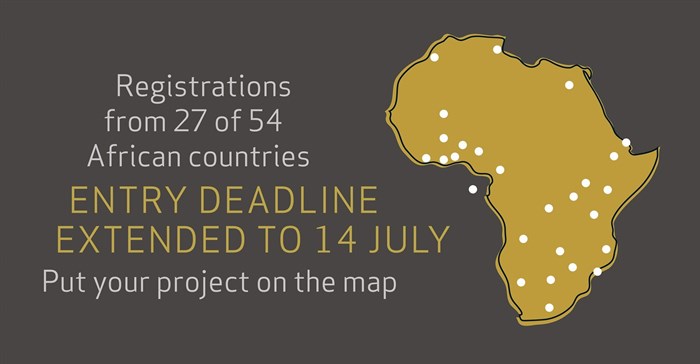Africa Architecture Awards extends entry deadline

There are two steps to enter: the first is to register, and the second is to submit documents, images and a film of the entered project. Over 360 registered entries for the inaugural Africa Architecture Awards have been received thus far. Any project that pertains to Africa may be entered. Current entrants hail from more than 27 African countries, including the surrounding islands and the diaspora.
From built projects to critical discourse
“As the founders of the Africa Architecture Awards, we are naturally pleased to see that the first-ever iteration has been so well received by architects,” says Saint-Gobain representative Evan Lockhart-Barker, the MD of the Saint-Gobain Retail Business Development Initiative. “But we would like to encourage as many entries as possible because we are aware of the vast number of significant projects from across Africa and how much they deserve to be highlighted. This extends from built projects to speculative works, to student projects and critical discourse.”
Launched by founder Saint-Gobain, the awards aim to recognise and reward worthy projects from across the African continent, with one overall winner garnering a $10,000 grand prize.
The awards programme has key collaborators like global heavyweight Sir David Adjaye OBE of Adjaye Associates as the official patron, a steering panel and advisory team comprising noteworthy academics and architects, and a master jury of award-winning practitioners drawn from across Africa and the diaspora.
The master jury will identify a shortlist of 20 projects, four trophy winners and one grand prix. The official awards ceremony is set to take place on 28 September 2017 at Cape Town’s Zeitz MOCAA, designed by British architect Thomas Heatherwick, which opens to the public that very same week.
A Lifetime Achiever’s Award is given at the discretion of the master jury. It is awarded to an architect or architects who have made a significant contribution to the professions of architecture and/or urban design over a substantial period of time.
The seven members of the master jury are: Anna Abengowe (Nigeria); Patti Anahory (Cape Verde); Guillaume Koffi (Cote d’Ivoire); Phill Mashabane (South Africa); Professor Mark Olweny (Uganda); Professor Edgar Pieterse (South Africa); and, Tanzeem Razak (South Africa).
Values-based criteria
Rather than adopt the more conventional categories of other global awards programmes, the master jury will approach the Africa Architecture Awards through a values-based system around the following three criteria:
Innovation – of design, materials, approach, practice, new forms of public space;
Identity – projects that deal sensitively and innovatively with heritage and tradition; that embody cultural sensitivity and contextual interpretation; that consider appropriation and repurposing of use; and that attempt to translate traditional ways of building/occupying space into modern and contemporary contexts;
Implementation – the energy and inventiveness required in Africa to create and implement projects in markets with varying levels and scales of economic government support and infrastructure.
Celebrating design excellence
“The intention of the awards is to create a broader awareness of the issues and opportunities inherent in the built environment in Africa through dialogue, analysis and critique. The awards will celebrate design excellence and promote an increased awareness of the role and importance of sound architectural theory and practice across Africa and the diaspora. The intention is to honour established architects and encourage emerging and future voices,” says Lockhart-Barker.
According to Professor Lesley Lokko, who chairs the Africa Architecture Awards Steering Panel and is head of the Graduate School of Architecture at the University of Johannesburg: “These awards present an opportunity to be an integral part of building an architectural culture that is pan-African in its scope and ambition, but one that looks firmly towards the future. Finding new means to tell an innovative, responsive and responsible narrative about what it means to be African, modern, forward-looking, inventive but also proud of our past, of our multiple heritages, cultures and contexts, and how these things coming together, are shaping a new Africa!”
For more information, go to www.africaarchitectureawards.com.







